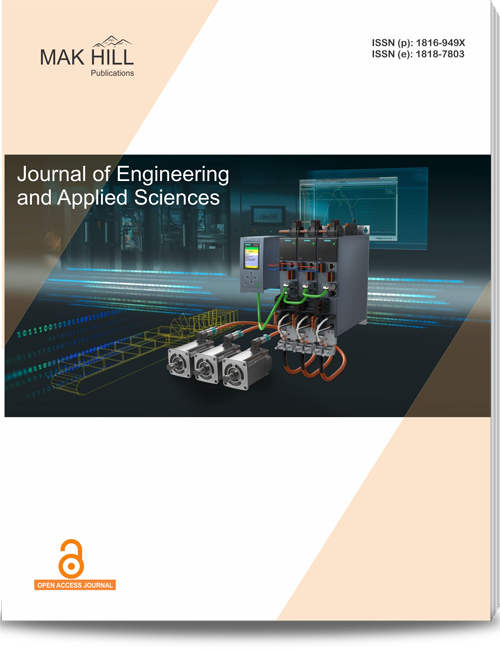
Journal of Engineering and Applied Sciences
ISSN: Online 1818-7803ISSN: Print 1816-949x
116
Views
0
Downloads
Personnel Motivational and Supervisory Practices for Quality Assurance in Adult Education Programmes in South-East, Nigeria
Esther Nwarube Edeh, Chubuike Darl Ochiagha, James Ojowu Ochim, Ngozi Justina Igwe, Nneka Dorida Oyigbo, Chinasa Maryrose Ugwunnadi, Charles Chibuike Onwuadi and Stella Chioma Nwizu
Page: 2653-2662 | Received 21 Sep 2022, Published online: 21 Sep 2022
Full Text Reference XML File PDF File
Abstract
The study investigated personnel motivational and supervisory practices for quality assurance in adult education programmes in South-East, Nigeria. The study was guided by two specific purposes, two research questions and two corresponding null hypothesis. A descriptive survey design was adopted for the study while the population of the study consisted 4.140 respondents comprising five directors, 95 unit coordinators and 4.040 facilitators of adult education programmes in the five South-East states of Nigeria. The sample size for the study was 755 respondents, in selecting the sample composition, the entire population of five directors and 95 unit coordinators were used due to their manageable size while multi-stage sampling techniques was adopted to select 655 facilitators from the total population of 4.040. The instrument for data collection was a researcher’s 16-item structured questionnaire titled “Personnel motivational and Supervisory Practices for Quality Assurance Questionnaire” (PMSPQAQ). The instrument was face validated by three experts and its reliability coefficient ascertained using Cronbach’s alpha method. The research questions were answered using mean and standard deviation while the hypothesis were tested at 0.05 level of significance using Analysis of Variance (ANOVA). The data analyses revealed among others that: the personnel motivational and supervisory practices for quality assurance are prompt payment of salaries and allowances of adult education personnel; provision of adequate personnel and job security measures; provision of instructional materials to the facilitators; conducive working environment; continuous in-service training; fairness in the promotion of adult education personnel and setting up favorable personnel policies which will promote job satisfaction. It also revealed that there were significant differences in mean ratings of the directors, unit coordinators and adult education facilitators as regards the two null hypothesis that guided the study. Based on the findings of the study, some recommendations were made amongst which were that; NMEC and SAME should partner with international organizations and NGOs in enhancing the working conditions of adult education personnel. They should commit more funds towards the improvement of adult education personnel welfare, so as to attract as well as retain the services of the right caliber of individuals in the field. Their salaries and other welfare packages should at least be commensurable to the ones received by their counterparts in other governmental parastatals.
How to cite this article:
Esther Nwarube Edeh, Chubuike Darl Ochiagha, James Ojowu Ochim, Ngozi Justina Igwe, Nneka Dorida Oyigbo, Chinasa Maryrose Ugwunnadi, Charles Chibuike Onwuadi and Stella Chioma Nwizu. Personnel Motivational and Supervisory Practices for Quality Assurance in Adult Education
Programmes in South-East, Nigeria.
DOI: https://doi.org/10.36478/jeasci.2020.2653.2662
URL: https://www.makhillpublications.co/view-article/1816-949x/jeasci.2020.2653.2662